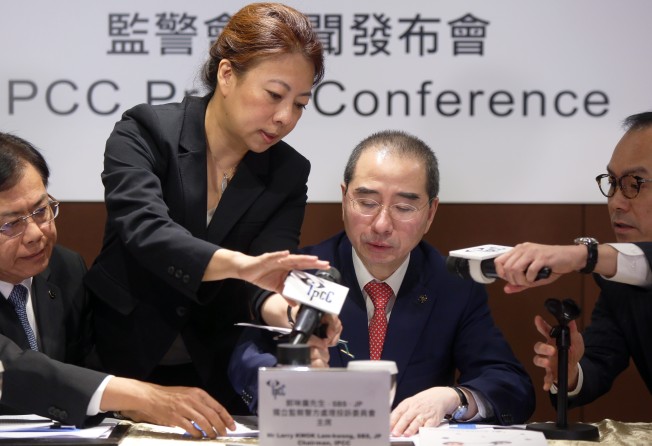Sharp increase in number of false allegations against Hong Kong police officers
Watchdog said some complaints were falsified to be used as a defence during criminal trials

The police’s complaints system has been abused as a defence in court, with the number of false allegations against officers recording a sharp 43 per cent increase between 2016 and 2017, the police watchdog said on Wednesday.
The Independent Police Complaints Council (IPCC) revealed in its annual report that it received 1,567 new reports from the police’s complaint body between April 2016 and March 2017, compared to 1,572 reports in 2015/2016.
The council had endorsed 1,550 cases involving 2,807 allegations, with 46 per cent of them accusing officers of neglecting their duty.
Among all allegations, 73 of them were found to be fake.
Richard Yu Koon-hing, secretary general of the council, said the watchdog had noticed a trend of abuse in the complaints mechanism as many complainants filed allegations to help them during a criminal case they were involved in.
“Out of the 73 allegations which had been classified as false, there are 68 allegations which (were driven from) complainants’ criminal cases,” Yu said at a press conference. “Their allegations were resolved in court and (were later) classified as false.”
Around one-third of the 68 allegations accused officers of fabricating evidence. The rest related to misconduct, assault, threats and neglect of duty.
In one case, the watchdog ruled a complainant, who was charged with possession of dangerous drugs, made three false allegations against four policemen as a line of defence in court.
The complainant first admitted the seized Ketamine was for his own use when he was under caution after arrest.
But he pleaded not guilty during the trial and accused the force of threatening him when taking the cautioned statement.
When the court ruled that his cautioned statement was voluntary and admissible, the complainant pleaded guilty instead.
He was convicted and sent to a detention centre.
The force cleared the four policemen from any wrongdoing and the watchdog believed that the complainant had made a tactical complaint to create doubt in his court case.
The watchdog sternly warned him about abusing the complaint procedures.
Deputy secretary general of the IPCC, Daniel Mui Tat-ming, warned that a person may face prosecution for making a false complaint or giving incorrect information to mislead police or waste their time.
Overall, 54 per cent of the allegations endorsed by the watchdog were not pursuable. The council only substantiated 49 allegations in 2016/2017, down from 81 in 2015/2016.